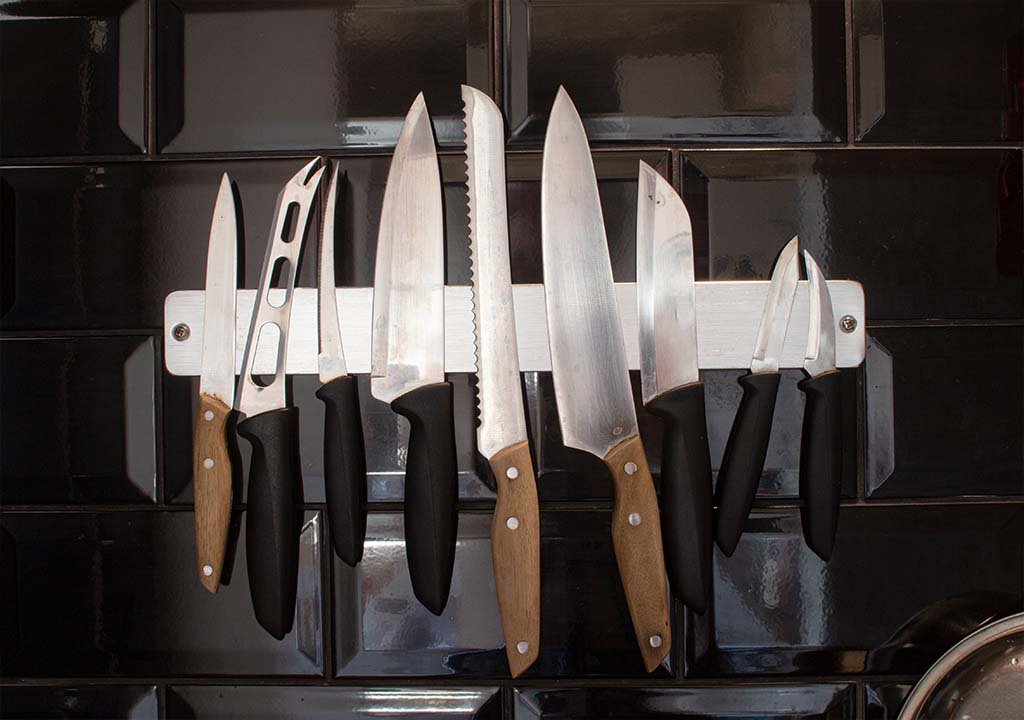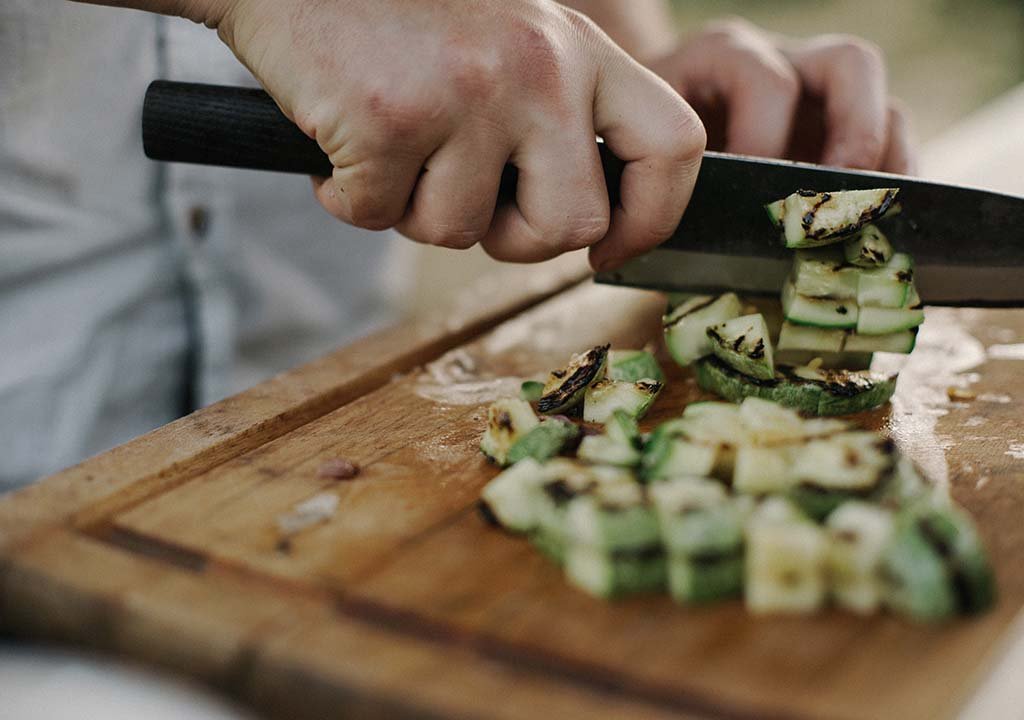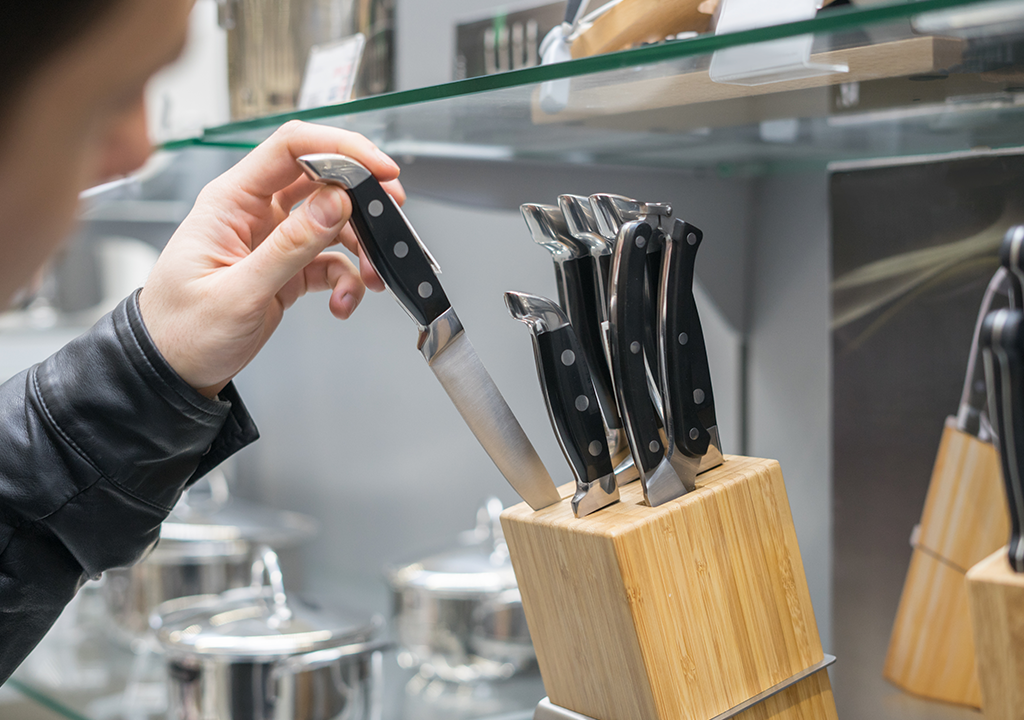Every passionate home chef and cook knows the importance of a good knife set. In order for your knives to last longer and work better, it is imperative to take a few steps for the longevity of your blades. Like everything else in your kitchen, knives also need to be taken care of! To take good care of your knives, you do not need to go to great lengths. All you need is this article’s relevant knowledge that we will provide you with. Here are a few things that should be kept in mind while buying and using a knife. Safe to say, they are tried and tested methods that work wonders if applied in your kitchen routines.
1- Choose the Right Type of Knife for your Kitchen

Buying the incorrect knives for the task will reduce the lifespan of your cutting tools. Knives come in various shapes and designs, and improper usage may lead to faster wear and tear. When it comes to kitchen cutlery, you’ll often find three kinds of knives to be the most versatile. These are the chef’s knives, boning knives, and paring knives. Each knife serves its functions in the best way possible. For example, you would need to buy a chef’s knife if you efficiently and sharply want to cut fruits, vegetables, and meat. Using the correct knife will make sure your knife is used for the purpose it is made explicitly for.
2- Use the Correct Type of Cutting Board

Never use a knife to chop food on anything hard, notably not your knife. Glass, granite, metal, and ceramic dishes are all included in this category. This is one of the most common ways people’s knives are subjected to wear and tear.
You need to make sure that your cutting board is not rigid; it is soft and supports your knife’s edge. That is not it; you also need to clean your cutting board because it serves as a bacterial site due to cutting scars on its surface.
3- Pay Attention to The Washing Process
Even if the label on your knife says “dishwasher safe,” you should never use the dishwasher to clean them. “Dishwasher safe” solely refers to the handle of a knife, and most people do not even know about it! The correct way to go about it is to wash your utensils by hand and dry them with a soft towel. A tool that can significantly help you in this process is a cleaning brush, especially for your serrated knives.
If you are wondering why you should not use a dishwasher to clean your knives, here is the reason. Using a dishwasher to clean your knives is terrible for both the dishwasher and your knives. The knife’s razor-sharp blades harmed your dishwasher’s plastic and coated metal racks as they slid about in the water.
This might damage your frames by removing the protective covering and allowing rust to form. Alternatively, your knife may be deflected by the objects in your sink. Everything your blade’s edge comes into contact with is harmful to the blade’s sharpness.
4- Do Not Throw or Play with Knives
The majority of folding knives cannot resist being thrown into trees, boards, or other wooden surfaces because of their similarity with daggers. However, you absolutely cannot do that! Impact strength is the most critical factor. When throwing a knife, the likelihood of it breaking is always high. It would be best if you only used specific throwing knives for throwing games. Also, knives should not be thrown around inside your home in any case. Additionally, it is essential to mention that you cannot subject your knife to “crash tests” by trying to cut a rope or split a log. This will reduce the effectiveness and sharpness of your knife, because all knives are not constructed in the same way.
5- Store your Knives Properly

Prepare your knife properly for storage if you wish to keep it for an indeterminate amount of time. This involves cleaning, packaging, and storing your knife in a way that prevents it from being damaged by the elements. Knife cases and knife sheaths will help you in this regard. Keeping the knife in its knife case will preserve your knife from environmental effects and keep it sharp for your kitchen duties. In addition to providing a way to carry your knife, sheaths protect the blade from the elements of nature and prevent it from being scratched.
6- Do not Keep your Knife in Hot Temperatures
Heat treatments are one of the many ways people opt for to make their knives sharper. Yes, heat treatments make your knife sharper, but that does not mean you stick your knife in a boiling pot of water. While carrying out knife treatments in their homes, some people hurt their knives’ lifespan.
Your knife will become utterly useless if the hot treatment is not done correctly, i.e., putting it in boiling water. The blade of a knife should also not be heated for this reason. Similarly, do not stick the blade of your knife in the fire.
7- Opt for Routine Maintenance of your Knives
You may keep putting off the routine maintenance of your knives because of laziness. However, that is not the best thing to do. Every time you use your knife, make it a practice to wipe it off with soap and water. Every time you use your knife, be sure to clean it thoroughly to prevent early corrosion. Additionally, mineral deposits and dulling debris will be less likely to accumulate. You can also rinse your knives in cold water instead of hot for better results.
In conclusion, knife sharpening and maintenance are imperative to your knife’s long life and have to be done in routine. If not, you will need to continuously shop for better knives than the ones you had before. But, following these steps will ensure that your knives are handled correctly and save you a lot of money!

